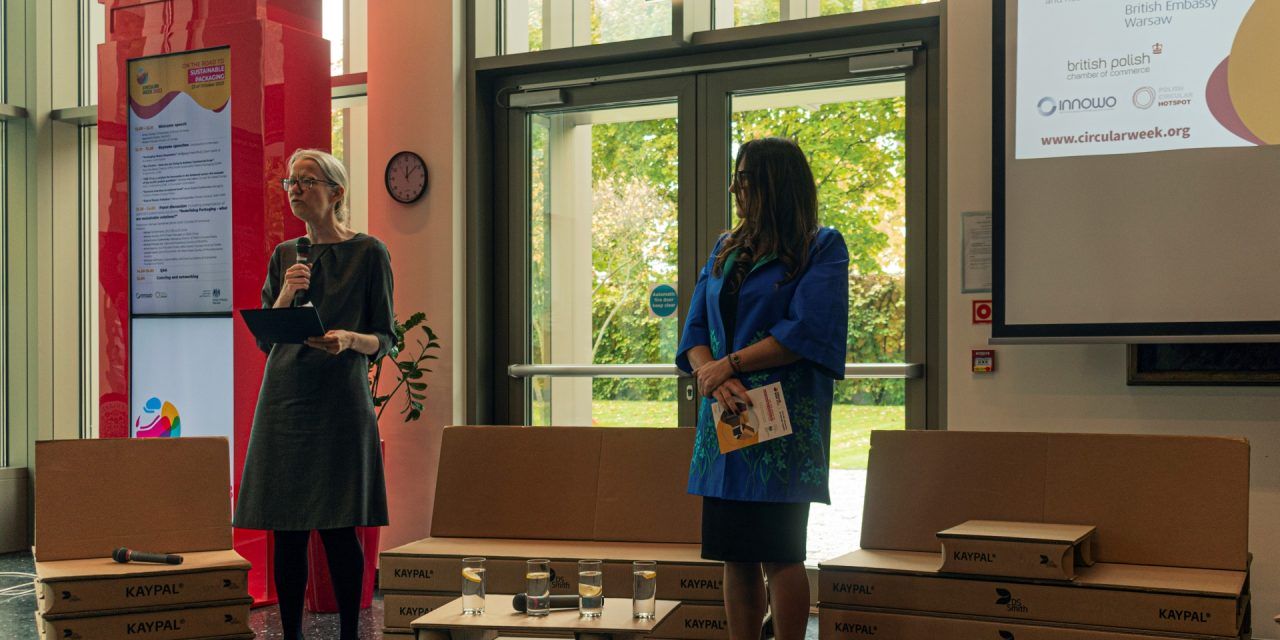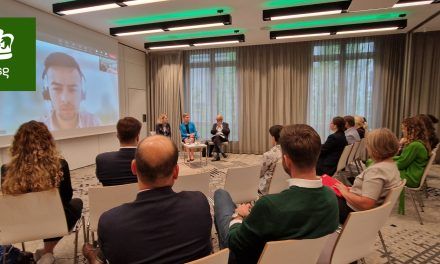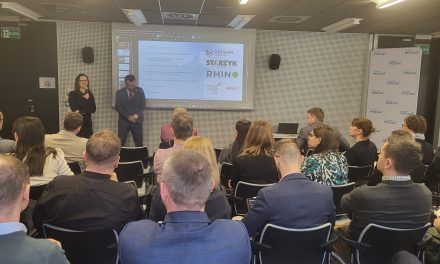Circular Week 2023, of which the BPCC is a patron, began with an event on sustainable packaging at the British Embassy in Warsaw. In her welcome speech, HMA Anna Clunes, highlighted the economic – as well as environmental – benefits of transitioning to more sustainable packaging could improve the UK’s resource productivity by up to 3% annually, adding £10 billion to gross value added. “Consumers want to do this”, she said, saying that 69% of British consumers see tackling packaging waste as a priority.
Wolfgang Trunk, leader of the European Commission’s Waste to Resources team, set out thinking underlying the EU’s Packaging and Packaging Waste Regulations (PPWR). Dr Trunk said that currently, EU citizens are producing 84 kilograms of packaging waste per year and that the Commission’s target is to reduce that to 66kg by 2030. He said that regulations were needed, as directives (which are implemented differently into national law across the EU) have been ineffective, and what’s needed are harmonised regulations across the single European market. Double walls, false bottoms – excessive packaging will be minimised, he said, giving as an example the small plastic shampoo bottles used in hotels. Single-use items are also on the EU’s target list, said Dr Trunk.
Paul Davidson, director of the Smart Sustainable, Plastics Packaging Programme at UK Research and Innovation, presented some examples of new packaging products, novel materials and new approaches in retail aimed at changing consumers’ habits.
The panel discussion that followed the presentations was moderated by the BPCC’s chief advisor, Michael Dembinski, and included the CEO for CEE at DS Smith, Reinier Schlatmann. Much of the debate focused on the damage plastic packaging was causing, and how paper and cardboard, being more recyclable and quick to decompose, should not be unfairly penalised by the PPWR. Panellists stressed the need for changes to consumer behaviour, and called for scientific data that analyses the life-cycle of materials, including the use of water for rinsing reusable cups and plates.
With around 500 million tonnes of plastic being produced each year – a figure forecast to exceed one billion tonnes by 2050, and 39% of that going to packaging, the need to cut back is clear, especially in the context of the plastic that leaks into the environment. Maria Andrzejewska from the United Nation’s Environmental Programme, said that by 2040, it was estimated that a further 37m tonnes of plastic a year will have entered our oceans.
Michael Dembinski reminded the meeting that September 2023 was the hottest September ever recorded, with the average surface temperature across the planet at 16.4C, which is 1.4C hotter than the average for the 20th century. Time is running out, he said.
Photo caption: HMA Anna Clunes (right) opening the event – and the recycled cardboard furniture for the panel discussion, courtesy of D.S. Smith. With her is Agnieszka Sznyk, president of the board of the responsible-innovation think tank, Innowo, who organised the event.
























